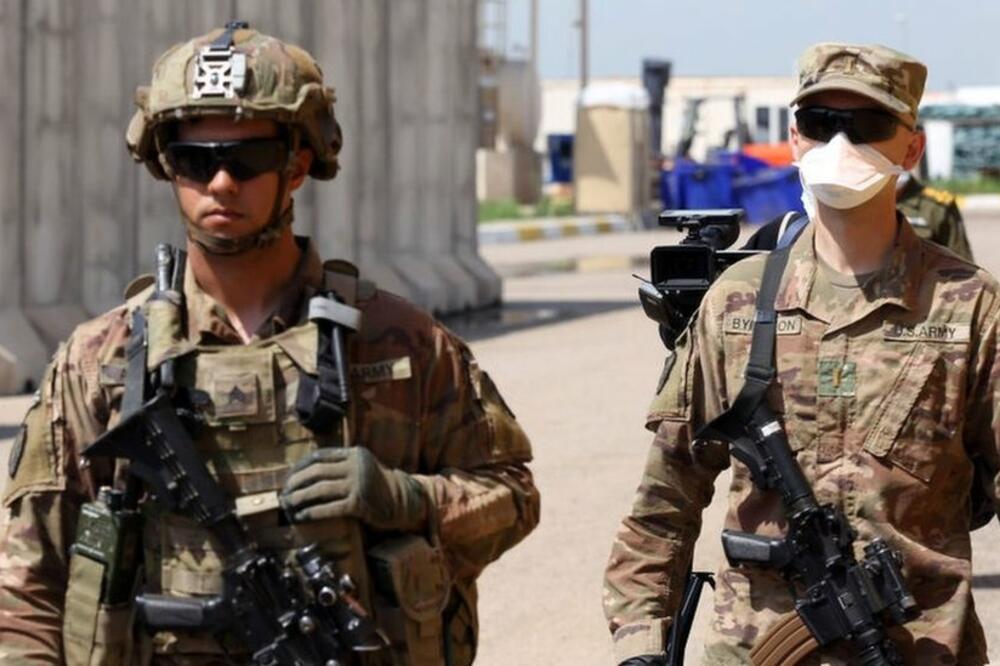US President Joseph Biden announced that the US military mission in Iraq will end by the end of the year, but also that the Americans will continue to train and advise the Iraqi army.
Biden's announcement, made after a conversation with Iraqi Prime Minister Mustafa al-Qadimi at the White House. it followed the decision to American forces, after 20 years of military engagement in Afghanistan, withdraw from that country ending with September 11 of this year.
American military intervention in Iraq and Afghanistan it cost a lot of money and prevented America from paying more attention to an increasingly powerful China, which the Biden administration views as the biggest long-term security challenge, according to AP.
About 2.500 US troops are currently deployed in Iraq to help local forces deal with remnants of the Islamic State extremist group.
- Donald Rumsfeld: The departure of the architect of the war in Iraq
- What is "Islamic State"?
- Why translators are targeted by "death squads" in Iraq
The US presence in Iraq has become a major issue since top Iranian general Kaiem Soleimani and Iraqi Abu Mahdi al-Muhandisu, commander of the Iran-backed Kataib Hezbollah group, were killed in a US drone strike in the capital Baghdad last year.
Iran-backed paramilitary forces are increasingly active in Iraq, periodically attacking American bases and demanding that all American troops leave Iraq immediately.
The United States has accused Shiite extremists of launching hundreds of rocket, mortar and drone attacks on Iraqi military bases housing coalition forces in an apparent attempt to pressure them to leave.
For the US president, the announcement marks the end of another war that was started under former President George W. Bush.
During a meeting at the White House, Biden told his Iraqi colleague that "anti-terrorist cooperation will continue".
Kadimi replied that the relations between Iraq and the US are stronger than ever.
"Our cooperation covers the economy, the environment, health, education, culture and much more."
He insists that Iraq does not need foreign combat troops.
American-led allied forces invaded Iraq in 2003 to oust President Saddam Hussein under the pretext of destroying weapons of mass destruction.
It turned out that Iraq does not have such weapons.
The then US President George Bush promised a "free and peaceful Iraq", but instead of such an Iraq, a bloody showdown began, primarily with extremist groups.
US combat troops eventually withdrew in 2011.
However, they returned at the request of the Iraqi government three years later, when they Islamic State extremists occupied significant parts of the territory.
After the military defeat of the Islamic State in Iraq in late 2017, US forces remained to help prevent the group's resurgence.
"Our role in Iraq will be to continue to train and assist (the Iraqi military) and to deal with extremists from the Islamic State," Biden said.
"But we won't be on a combat mission until the end of the year."
Iran's advantage?
analysis by Frank Garnder, a journalist in the field of military security
Ever since 1979, Iranian leaders have wanted American forces to leave the neighborhood and for Iran to become the main power in the region.
Iran has not had much success in the Arab Gulf states, where mistrust of Tehran runs deep and where the US military has bases in all six countries.
But the US-led overthrow of Saddam Hussein's regime in Iraq removed the most effective obstacle to Iranian expansion, and Tehran has never missed an opportunity to assert itself since.
He has successfully inserted Shiite extremists into the fabric of the Iraqi security establishment, and his allies have a strong voice in parliament.
The Syrian civil war has opened the door for a major Iranian military presence, while in Lebanon, Iran's ally Hezbollah has become the most powerful force in the country.
Iran is playing the long game.
Its leaders hope that if they keep up the pressure, both overt and covert, the Middle East will eventually become a region unworthy of the American effort to remain militarily engaged.
Hence the frequent missile attacks on American bases and Iranian support for civil protests demanding the withdrawal of American troops.
The agreement on the end of the US combat operation in Iraq will be seen by many in Tehran as a step in the right direction.
Follow us on Facebook i Twitter. If you have a topic proposal for us, contact us at bbcnasrpskom@bbc.co.uk
Bonus video:




